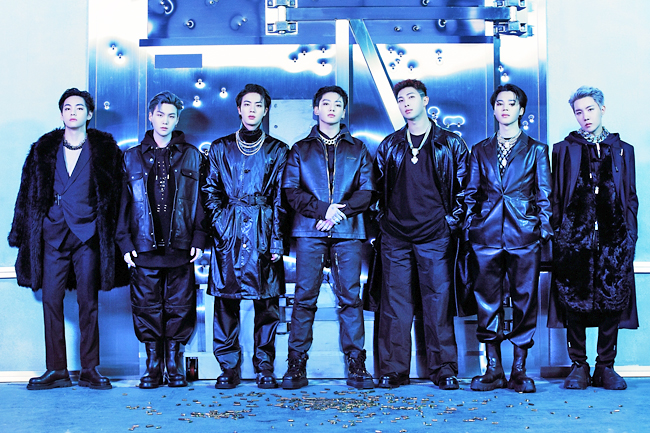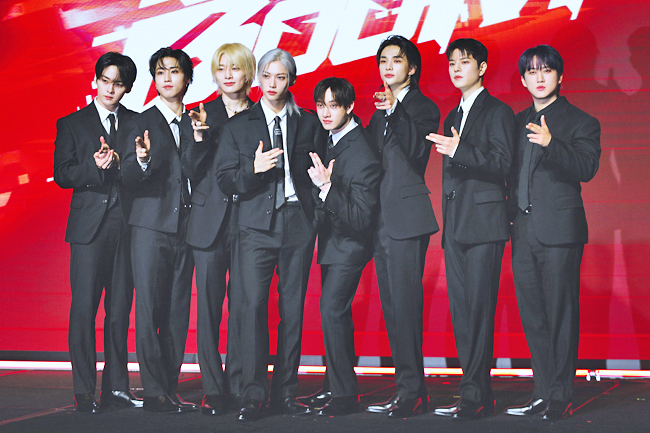ANN/THE KOREA HERALD – The 2025 K-pop landscape is poised for a thrilling year, with the highly anticipated returns of BTS and Blackpink and the debuts of promising new groups from industry giants like SM, YG, and JYP Entertainment.
Industry experts predicted that extensive world tours by top K-pop acts will significantly contribute to the global expansion of the K-pop music market.
However, the industry also faces mounting pressure to address long-standing issues, such as the treatment of young trainees and idols’ increasing calls for better working conditions – challenges that market observers believe will require significant time and effort to resolve.
The return of BTS, with all seven members completing their military service by the end of June, is poised to be this year’s most significant event. While Hybe has not yet revealed plans for the group’s music or album releases in the second half of the year, music critic Lim Hee-yun expected the group to prepare events for its global fan base, which has eagerly awaited the band’s comeback for nearly two years.
“It’s unlikely that BTS will release a new song or EP immediately after reuniting in the second half (of the year), but it will undoubtedly organise events to reconnect with fans,” Lim said recently. “A key issue, however, is how Hybe plans to handle member Suga, who was involved in a drunk-driving incident last year.”
Blackpink’s plans to release a new album and embark on a world tour are another highlight. Lim anticipates strong synergy among Jennie, Lisa and Rose, all of whom achieved notable success with their solo activities outside YG Entertainment.



“Not just Blackpink, but also groups like Stray Kids will conduct world tours that will significantly contribute to expanding K-pop’s market share globally while generating substantial profits,” Lim added.
Music critic Kim Do-heon echoed similar sentiments, predicting continued growth in the global K-pop market.
“While BTS resuming activities will be a major focus, the rise of global boy bands and their world tours will also generate significant buzz and sustain the industry’s momentum,” Kim said.
New groups from major K-pop agencies are also set to debut this year. JYP Entertainment introduced KickFlip, while SM Entertainment is preparing to launch a new girl group. YG Entertainment founder Yang Hyun-suk has announced plans for a new band but has not disclosed a debut date.
The rise of virtual idols remains a point of interest. Last year, virtual idols such as Plave and Naevis gained significant popularity. SM Entertainment’s virtual K-pop idol Naevis released a remix of her debut single Done on December 20 and is scheduled to appear at SM’s 30th anniversary concerts at Gocheok Sky Dome in Seoul on January 11-12.
However, Kim said that more time is needed for virtual idols to establish a substantial presence. “Virtual idols have emerged as unique phenomena overseas, but overcoming technological and public interest challenges remain a complex task. Despite these hurdles, we can expect ongoing efforts and innovations in this space,” he said.
The legal dispute between NewJeans and its agency Ador will continue to draw attention this year. The court battle follows the group’s unprecedented move to terminate exclusive contracts with their agency last year, raising concerns about the stability of existing agency structures.
The girl group announced their departure from Ador, a subsidiary of Hybe, last November, citing alleged mistreatments and breaches of contract. Member Hanni also testified before the National Assembly about experiencing workplace harassment and bullying.
“The NewJeans controversy has served as a catalyst for bringing long-suppressed issues within the idol music industry to light,” Lim said. “While these discussions have gained traction both domestically and internationally, it remains to be seen whether they will result in meaningful changes. Awareness is a critical first step, but it doesn’t guarantee solutions.”
K-pop agencies’ localisation strategies – discovering talent in different countries and training them under the K-pop system – are also facing challenges.
In December, KG, a member of JYP Entertainment’s American girl group VCHA, filed a lawsuit against the agency, alleging abuse and mistreatment by certain staff members.
KG’s statement highlighted an environment that contributed to severe mental health issues among members, including eating disorders and self-harm. She also expressed concerns about extreme working conditions and financial exploitation.
“As the K-pop industry operates as a business, significant improvements are unlikely to happen quickly and will take considerable time,” said music critic Lim Hee-yun. “The same applies to issues surrounding idols’ privacy, personal rights and human rights. Even as awareness grows and more voices call for change, substantial progress remains slow. For those directly affected, the prospects of meaningful reform often feel distant and limited.” – Jae-heun Kim






